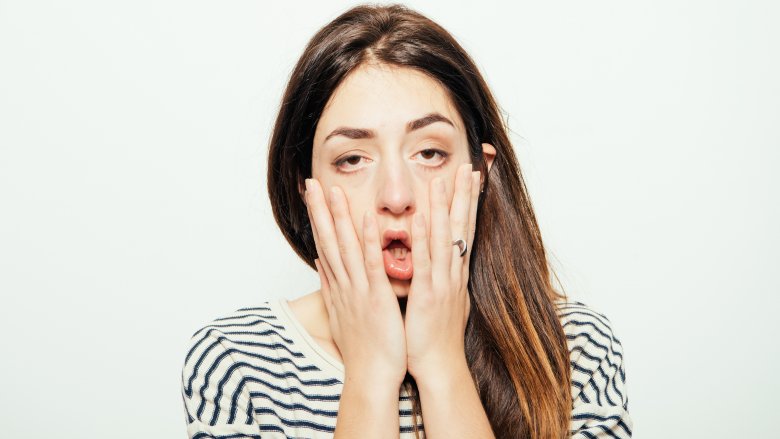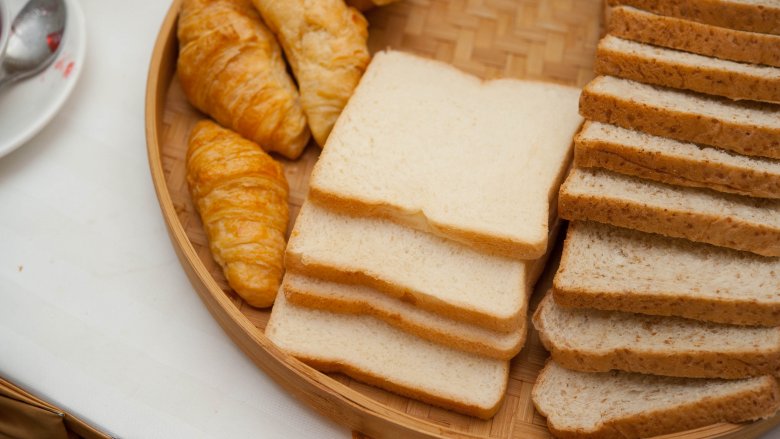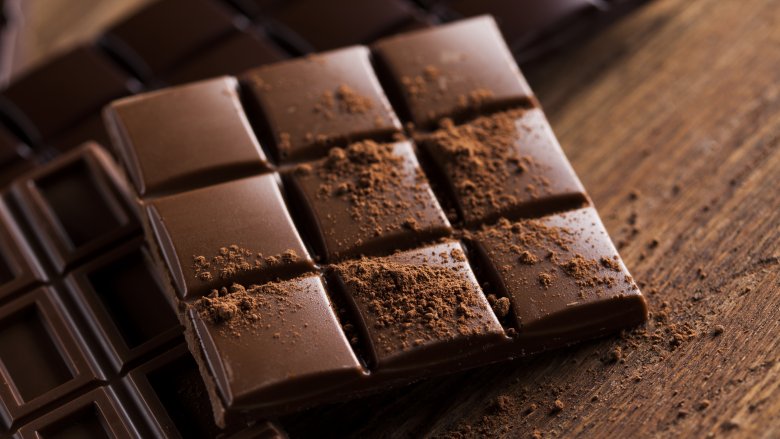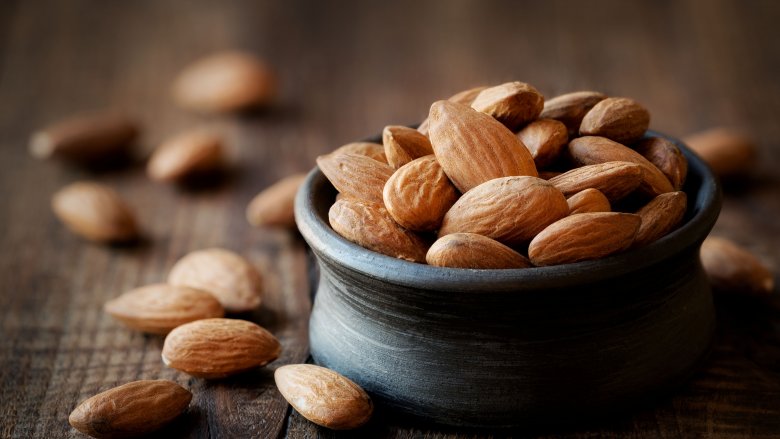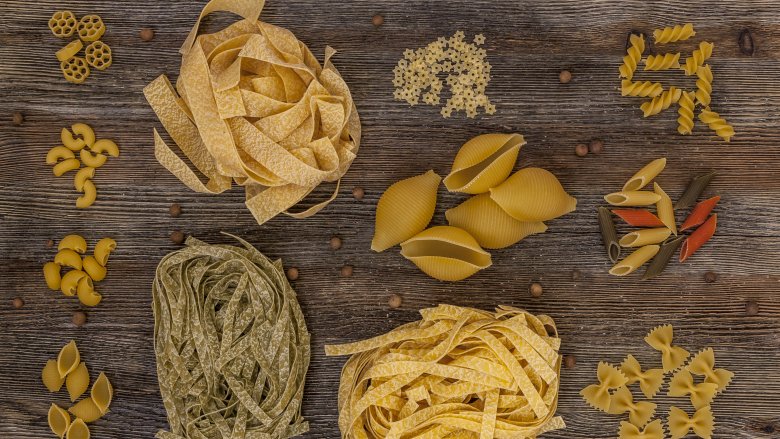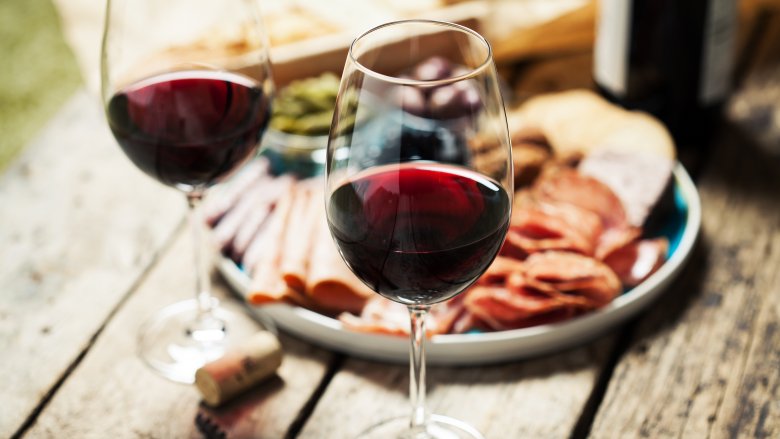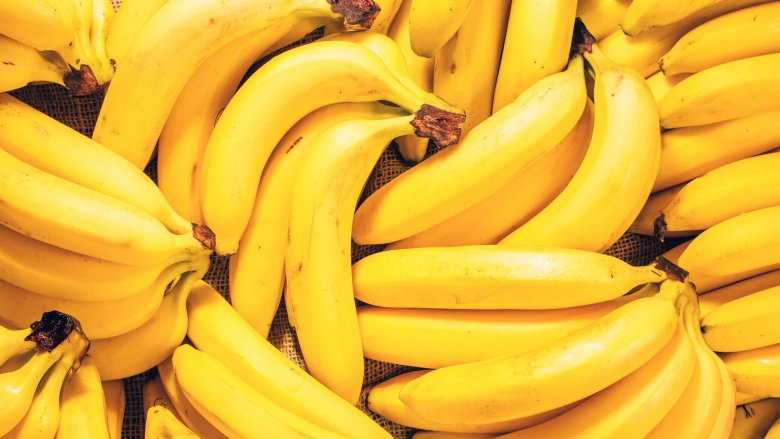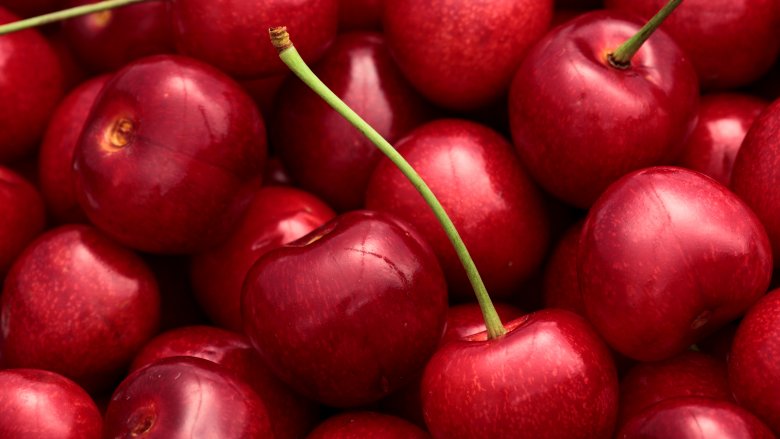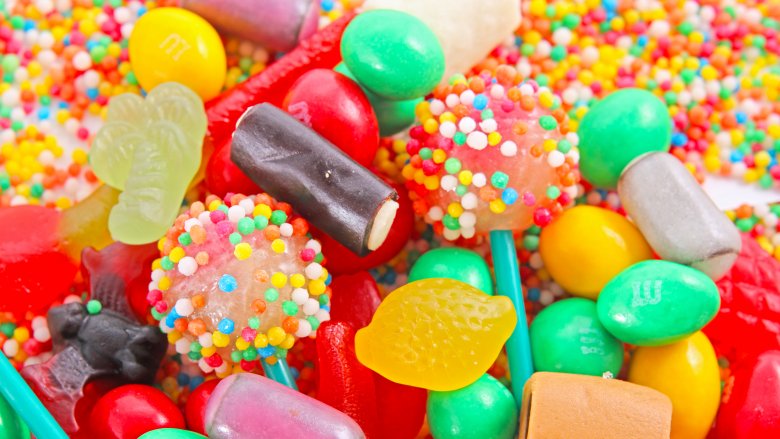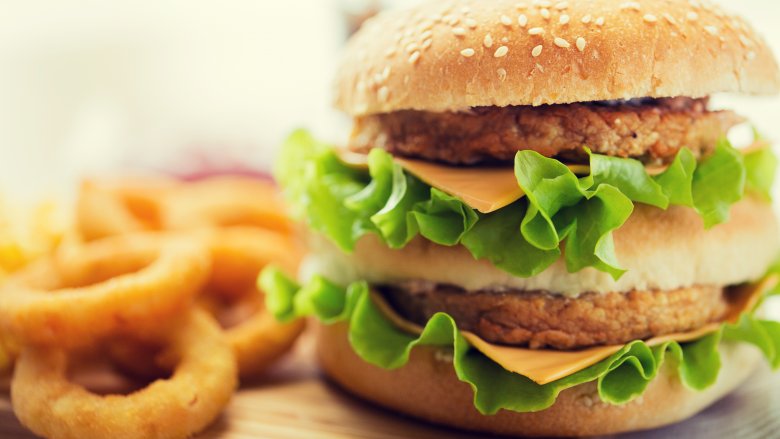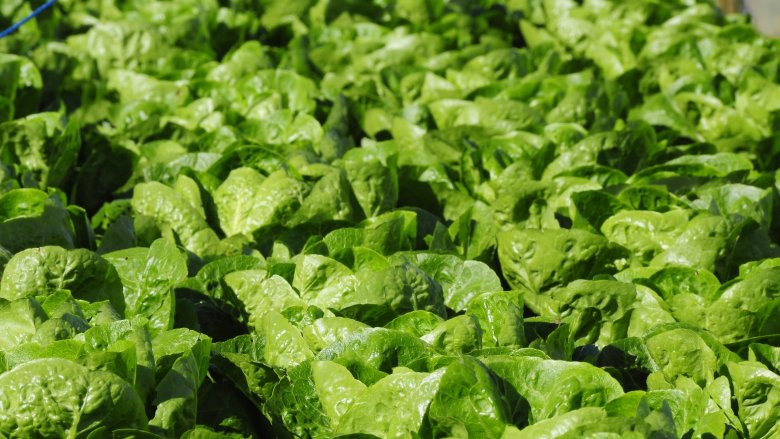Foods That Are Making You Tired
Feeling sleepy? It might be what you're eating. We tend to spend so much time focused on the more obvious effects of the food we consume — taste, health benefits, that sort of thing — that it's often easy to overlook the subtler ones. Yes, there's a fair bit of science to suggest that certain foods have a tendency to put you to sleep.
Not all foods are the same, of course. Some contain chemical ingredients that will literally make you tired and help you sleep more soundly (that's good!) while others, by their nature, will induce fatigue and make your waking days all the more difficult for it (that's bad!). Either way, there's something in all these foods — some of which are so everyday that we can guarantee you've eaten them in the last few days — that'll get those eyelids drooping. Avoid some, embrace others — just try not to operate any heavy machinery while you're doing so, yeah?
Bread
Considering it's pretty much the most staple of all the staple foods, bread tends to get quite a bad rap. For one, there's the fact that it (pretty famously) makes you gain weight, which is such a shocking revelation to so many people that learning it might as well be a coming-of-age rite. Well, as if things weren't bad enough, it seems that the world's most basic food is making you tired, too.
And this doesn't happen just because you have a full belly. The carbs from bread release sugar into your bloodstream after a quick digestion, which triggers the release of insulin which, in turn, sets off a chain reaction that ends with your serotonin levels increasing — and that means being on the receiving end of a calming, sleep-inducing effect. When your blood sugar comes back down, you're going to see another drop in your energy levels, too. These effects are all more palpable if you're eating white flour bread and suffer from gluten intolerance.
Milk chocolate
Ever tucked into a bar (or six) of milk chocolate and felt a little sluggish afterwards? Yes, you have. Don't lie. And the reason isn't just because nobody could possibly stay awake after eating that much. The reasoning is basic: chocolate is high in carbs and sugar, meaning eating it will increase the production of insulin in your body. This will allow more tryptophan into your brain which, yes, eventually results in an increase in your serotonin levels. Cue sleepiness.
This all goes doubly if you suffer from diabetes (or even pre-diabetes), which can cause severe fatigue in either of its types after indulging in a carb-heavy snack. If you still want to beat off the bouts of tiredness milk chocolate is giving you, try switching to dark chocolate when you're looking for something sweet: the cocoa contains less sugar, which means less insulin — and therefore less fatigue.
Almonds
Almonds are the perfect bedtime snack, since they contain a whole host of beneficial components that will help send you to sleep. The first is — you guessed it — tryptophan. In fact, a quarter of a cup of almonds will contain almost 50 milligrams of the stuff, which will cause a release of serotonin in your body which, well, you know the rest. They also contain magnesium, which helps you sleep longer and more deeply; calcium, which helps your production of melatonin and regulates your body clock; niacin, which regulates your anxiety levels; and protein, which prevents your blood sugar levels from dipping too much.
Put all that together and you've got a snack that will help you sleep, let your muscles relax, make sure you're not waking up too early, and stop you from feeling stressed. Should you find yourself struggling to sleep in the near future, try introducing almonds and other nuts into your late night routine. It's a habit that's bound to yield some incredibly positive effects.
Pasta
You ought to be able to figure out how this process works by now. Carbs, insulin, tryptophan, serotonin, tiredness. It's really not that complex, is it? So let's go through some other reasons your big pasta lunch might be making you drift off. There's the fact that digesting food in the first place requires a great deal of energy — consuming large meals in particular is likely to make you tired because your body must work harder to digest and break down that food. Your various allergies and intolerances are also going to have an effect, just like with bread, and are as likely to lead to lethargy as they are to bloating, indigestion or reflux problems.
Keep your portions smaller, make sure your diet is well-balanced and try to exercise when you can and you'll easily counteract some of these side-effects. This doesn't mean you have to skip your lunch at Olive Garden — just go with the soup and salad instead of a full pasta entree.
Wine, but not in the way you think
Yes, we know what you're going to say — obviously wine makes you sleepy. Well hold off on that snark for just one minute, because it's actually a lot deeper than booze acting as a sedative and making you pass out. It actually begins by ruining your sleep. You see, alcohol causes your respiratory muscles to relax during the night, which suppresses your ability to breathe.
This, in turn, makes it more difficult to enter REM sleep, the deepest and most effective part of the sleep cycle. If you can't do that, then you're going to be sleeping too lightly and not enough, and that's going to cause problems for you the next day. And you're probably going to have enough on your plate, what with that massive hangover and all. Make sure you stop drinking at least an hour before you head off to bed and you should be able to avoid this problem.
Bananas
The effect of bananas on how you sleep is certainly more on the "actually quite beneficial" end of the spectrum, rather than the "will make you want to crawl into bed at six in the evening" end. They do, of course, contain that most apparently ubiquitous amino acids — tryptophan — meaning they'll give you a boost in serotonin and melatonin, helping you to get to sleep that little bit easier.
They also, however, contain a great deal of magnesium (12 percent of your daily intake in one banana, in fact) which, as we know, helps your muscles to relax. Each banana is also filled with potassium — about 10 percent of what you need in a day — which has a similar effect to magnesium and helps your body stay relaxed during sleep. Maybe instead of snacking on a banana on the way to work, it can become a part of your nighttime snack?
Cherries (especially tart ones)
According to research shared by the Cherry Marketing Institute, cherries can be incredibly useful in helping you make the most of your sleep. Tart cherries in particular are a rare natural source of melatonin, that crucial chemical which our brain produces to help us doze off. As a result, eating these cherries can help us sleep more efficiently and for longer periods of time.
A pilot study conducted to assess the effect of drinking tart cherry juice on the elderly found that the eight older sufferers of insomnia who completed the trial found their sleep time increased by 84 minutes after drinking it. The tart cherry juice increased the availability of tryptophan in the brain, reduced inflammation and, the report concluded, was at least "partially responsible for improvement in insomnia." So there you have it — just one more health benefit of eating tart cherries to add to the many others.
Sugar
Actually, there's a useful catch-all truth that can explain a lot of the things that relate to this topic: eating sugar makes you tired. When you eat sugar, you might receive a sudden burst of energy, but this is short-lived and comes with a major downside: your brain loses its ability to produce a chemical known as orexin, which helps keep you awake and alert. Add a drop in blood sugar levels once the good stuff wears off and you've got a recipe for some serious sluggishness.
There's not a lot you can do about your blood sugar dipping (except not eating as much sugar, which we totally recommend) but you can do something to keep your orexin up. Foods that contain even moderate amounts of protein actually stimulate the brain into releasing more orexin to the extent that it can actually compensate for what you might lose after eating sugary foods. This is especially true when you consume protein and sugar simultaneously. Make sure to follow that treat contains a decent amount of protein and you should be able to stave off fatigue for just a little longer.
Fatty foods
Just like sugar is bound to send you off to fatiguesville, so too are fatty foods. According to a round of Australian research (via Men's Health), eating 135 grams of fat in a day is 78 percent more likely to induce tiredness during the daytime than people who eat 58 grams per day. Fat can build up in your gut, producing neurohormones which make your brain less able to react quickly and more susceptible to tiredness. On top of that, it increases your risk of sleep apnea, which keeps you from falling into a deep sleep by interrupting the REM stage of your cycle.
It's common knowledge that some fats are worse than others, and this applies to sleep, too. Keep away from saturated and trans fats, which are far more likely to cause some of these problems. Otherwise, keep your diet relatively low-fat (you should be eating half a gram of fat every day for every pound of your ideal weight) and you should stay as spritely as you are healthy.
Lettuce
So you've done it all. You're eating almonds, bananas and cherries before bed. You're avoiding wine late at night. You're keeping fatty and sugary foods as far away as possible. But it's not enough — for some reason, you still can't sleep at night and you're still nodding off during the day. It might be time to introduce the nuclear option: lettuce.
Okay, so it's not exactly nuclear, but it will help. Lettuce contains a substance known as lacturcarium, a kind of milky fluid which is secreted from the base of the vegetable's stems. Taken at its most powerful, lacturcarium has effects which are similar to opium and has historically been used as a sedative and pain reliever. Your everyday serving of lettuce isn't going to contain enough of this stuff to induce those effects, but it certainly is present — and should go a good distance to helping you get a good night's rest. That's right — though a salad may not be a conventional bedtime snack, it might help you achieve the rest you're looking for.
